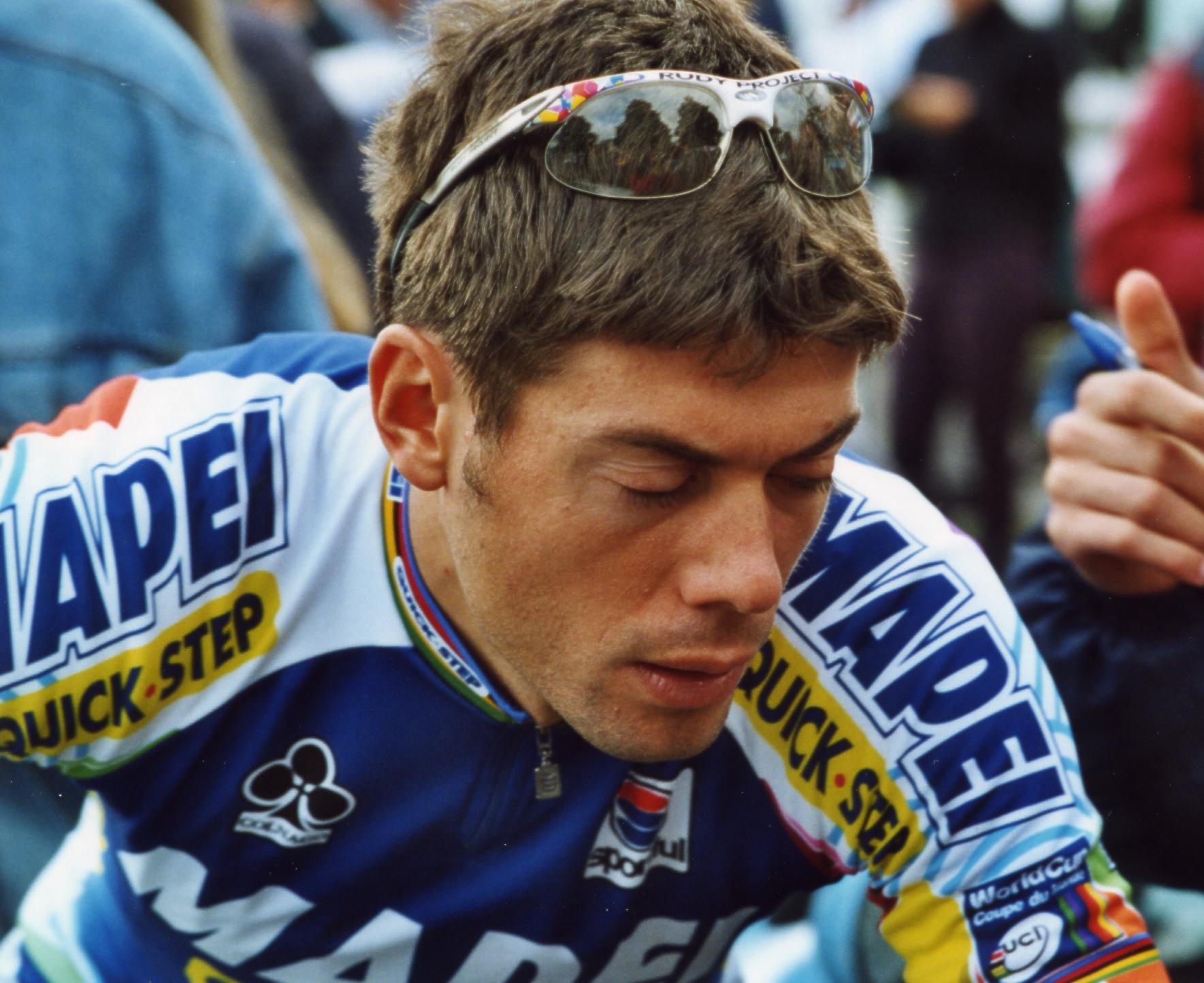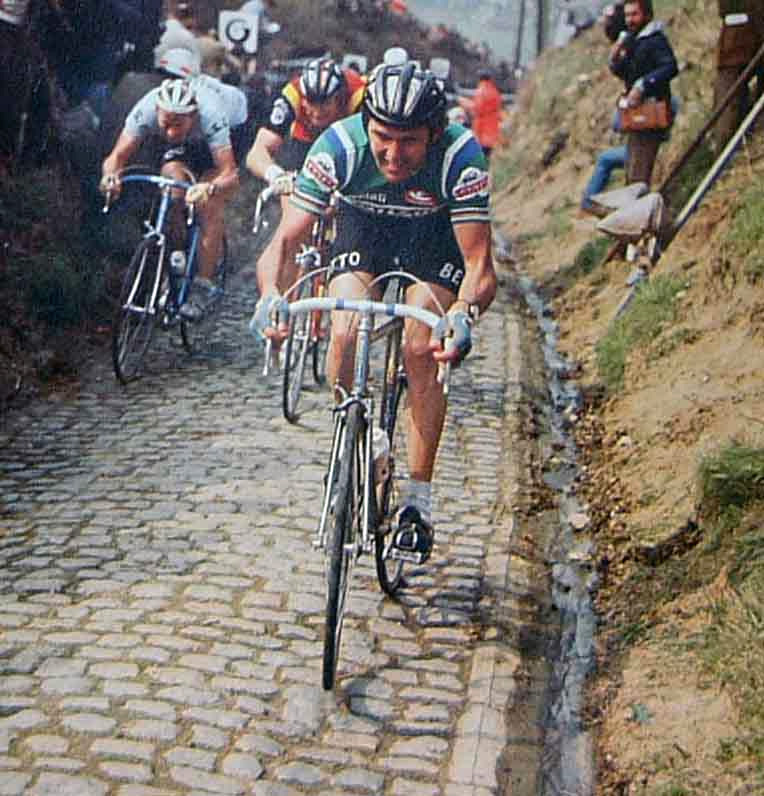Today is the birthday of Cyrille Guimard. The genius of
Cyrille Guimard as a team manager and
directeur sportif is well-known. Here is the man who turned Lucien Van Impe into a Tour de France winner, guided the early career of Bernard Hinault, discovered Greg LeMond, nurtured Laurent Fignon, and arguably hired a younger Lance Armstrong into Cofidis. At least, before Guimard was sentenced for credit card fraud. More recently, he managed the junior team
Velo Club Roubaix that counted Andy Schleck in its roster.
What is less-known to English-speaking readers is
Guimard the Rider. This is a story of the
1972 Tour de France, and more precisely the battle of Eddy Merckx and Cyrille Guimard that will lead to the picture shown below.
 |
| Eddy Merckx and Cyrille Guimard at the TdF final podium in Paris, 1972. |
Why is Merckx in a cycling kit but Guimard is in a suit?
If that photograph had been in color, you will have seen that Merckx was wearing
yellow and Guimard was holding onto a
green-colored jersey.






